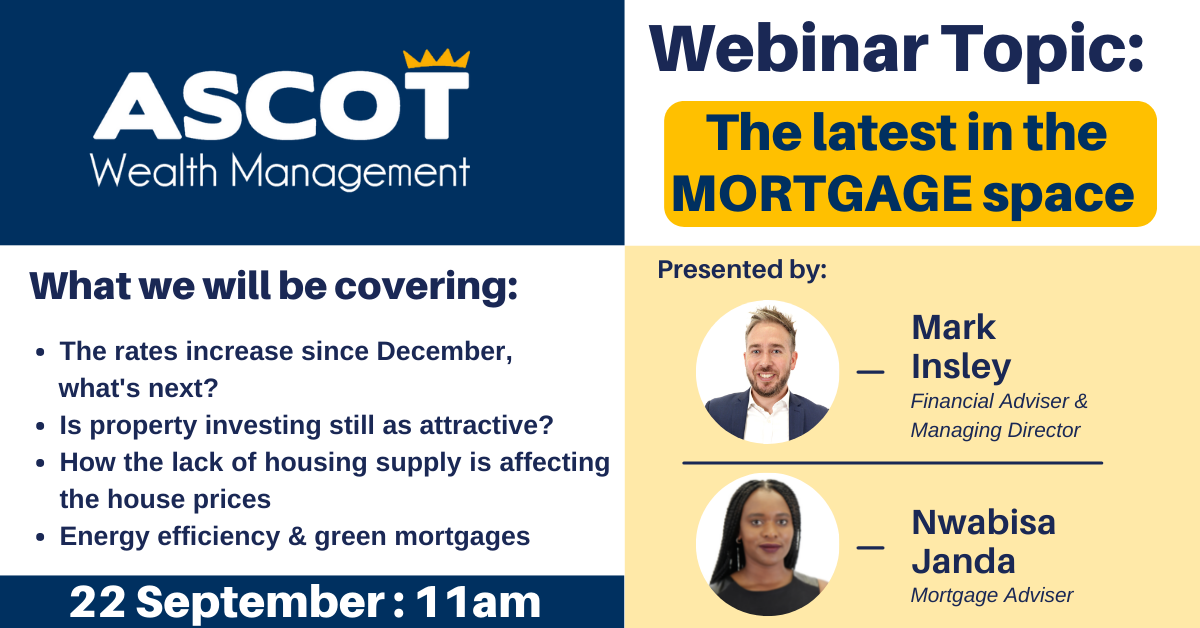- 01344 851250
Facebook
Twitter
Instagram
Linkedin

Risk Tolerance – What’s Your style?

Risk
Risk – exposing something to loss – can be applied to many everyday actions that people do. There are different risk profiles which define your attitude towards these risks. These include conservative, moderately conservative, moderately aggressive, aggressive and very aggressive. When it comes to money, people’s tolerances to risk differ greatly; some are more than happy to accept a loss for the potential of large gain (very aggressive), some are willing to risk, but would ideally settle for no less than break-even (moderately aggressive), and some hate the thought of losing anything (conservative), so what is your style?
Michael’s View
Personally, my tolerance to risk changes depending on the scenario; however, generally speaking I am willing to take a risk, with the hope of a beneficial outcome, so I would argue that my risk profile is aggressive. I think of risk being more of a mind-set and for me the positive outcome more so than the negative outcome. This perhaps explains either my aggressive outlook on risk, or my poor decision making in the past when it comes to things involving risk – that is up to you to decide. Attitudes towards risk can vary depending on people’s personal circumstances; monetarily speaking, it could be assumed that someone with more disposable funds would be more willing to risk their money, as they have a larger amount of it ‘spare’, so they may be more aggressive. It could therefore be assumed that someone with less disposable funds would be more risk averse, and would want to avoid any loss of money and would therefore be conservative.
Does One’s Risk Tolerance Change?
One’s attitude to risk can, and quite frequently does, change. For example, bad experiences where someone has risked something, and the result was the undesired one, they may decide to not take risks like that again. As a result, they may go from an aggressive risk taker to a moderately conservative risk taker. Similarly, someone may have positive experiences with more moderate risks, so they may be willing to increase their risk capacity, and look to take more aggressive risks. Examples of risk like this range from investing in start-up companies to sports betting, where it goes right/wrong the first few times, so the individual increases/decreases the risk accordingly.
Risk Insurance
Attitudes to risk also depend on the type of risk in question, as risk doesn’t just apply directly to the loss of money. Despite being unlikely, there is a risk that your property could catch on fire, you could be in a car crash, or a natural disaster could occur. The result of this would be damage to your property which would cost greatly to repair or even replace; people attempt to mitigate this risk by purchasing insurance. Insurance can provide cover to replace or repair an item(s) that is accidentally damaged or damaged for a reason outside of their control. Insurance is a common example of people not wanting to risk the chance of an event not happening, and people being conservative with this specific risk. There are a broad range of insurances out there, including home/contents insurance, life insurance and redundancy insurance, to name a few. Insurance, however, does not guarantee having no risk.
Is Taking A Risk Worth It?
Ultimately, risk is a part of everyday life; applying for a job, doing a certain activity or even extremes such as longer term risks caused by lack of sleep, stress etc. Arguably we can’t mitigate all risks can we? This is why sometimes it is worth it to just take the risk; we unknowingly take risks all the time, so perhaps risk isn’t so bad after all. This being said, it is important to be responsible and don’t fall out of your depth.
Are You Willing To Take A Risk?
If you are looking to make investments, Ascot Wealth Management caters for all different types of investment risk profiles and needs. Products ranging from Portfolio 1, which contains less volatile investments for those who are conservative investors, to Portfolio 5, which holds more volatile investments for those who are willing to invest more aggressively, is an example of what Ascot Wealth Management can provide. Volatility in investments relates to the price fluctuations of said investments; the higher the volatility, the more likely there is to be a change in the price, the lower the volatility, the lower the likelihood of price changes. Higher volatility is commonly associated with higher potential for growth, but on the other hand, it is also therefore more likely to see greater losses. This is the main determining factor for people when they consider investing – do I want aggressive investments that could potentially bring me higher returns, but run the risk of greater loss? Or do I want more cautious investments for more long term, stable growth, with less risk of large losses? That depends on your style.
Written by: Michael Morris
25 August 2022
Contact Us
Facebook
Twitter
Instagram
Linkedin

Ascot Wealth Management Limited is authorised and regulated by the Financial Conduct Authority reference 551744. Our registered office: Scotch Corner, London Road, Sunningdale, Ascot, Berkshire, SL5 0ER. Registered in England No. 7428363. www.old.ascotwm.com Unless otherwise stated, the information in this document was valid on 3rd February 2017. Not all the services and investments described are regulated by the Financial Conduct Authority (FCA). Tax, trust and company administration services are not authorised and regulated by the Financial Conduct Authority. The services described may not be suitable for all and you should seek appropriate advice. This document is not intended as an offer or solicitation for the purpose or sale of any financial instrument by Ascot Wealth Management Limited. The information and opinions expressed herein are considered valid at publication, but are subject to change without notice and their accuracy and completeness cannot be guaranteed. No part of this document may be reproduced in any manner without prior permission. © 2017 Ascot Wealth Management Ltd. Please note: This website uses cookies. To continue to use this website, you are giving consent to cookies being used.


